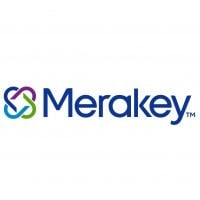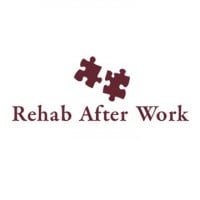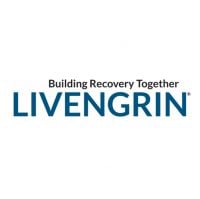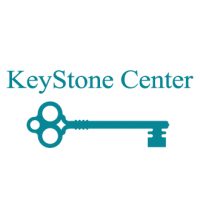Penn Foundation Behavioral Health Services
Drug Rehab Center in Sellersville, Pennsylvania
Penn Foundation Behavioral Health Services in Sellersville, Pennsylvania, is a renowned addiction treatment facility that offers comprehensive care for individuals struggling with alcoholism, opioid addiction, substance abuse, and mental health issues through a wide range of services including inpatient programs, outpatient programs, and dual-diagnosis treatment.
About This Pennsylvania Facility
Penn Outpatient Center, located in Sellersville, Pennsylvania, is a private rehab facility dedicated to providing superior behavioral and mental healthcare. Its primary focus is on treating dual diagnosis and mental health issues in an individualized and family-centered setting.
The center believes in the resilience of the human spirit and supports individuals in realizing their emotional, physical, and spiritual potential. It aspires to better serve the community through an integrated model of coordinated and cost-efficient care.
Accredited by CARF, an internationally recognized accrediting body, Penn Outpatient Center offers a range of treatment methods and levels of care. These include aftercare support, detoxification, drug rehabilitation, inpatient and outpatient programs, partial-hospitalization, residential treatment, dual-diagnosis treatment, and intervention programs.
- Individualized treatment plans tailored to each person's needs
- Family-centered approach involving loved ones in the recovery process
- Evidence-based therapies and holistic healing methods
- Experienced and compassionate staff dedicated to patient success
Penn Outpatient Center specializes in treating individuals struggling with dual diagnosis, which involves co-occurring mental health disorders and substance abuse issues. The facility provides comprehensive care to address both conditions simultaneously for a more effective and lasting recovery.
For someone battling opioid addiction and depression, Penn Outpatient Center would develop an integrated treatment plan. This may include medication-assisted treatment, individual and group therapy, counseling, and holistic therapies to manage withdrawal symptoms, address underlying mental health concerns, and develop coping strategies for long-term sobriety.
Genders
Ages
Modality
Additional
Accreditations

CARF
The Commission on Accreditation of Rehabilitation Facilities (CARF) is a non-profit organization that specifically accredits rehab organizations. Founded in 1966, CARF's, mission is to help service providers like rehab facilities maintain high standards of care.
Conditions and Issues Treated
The inappropriate use of any drug in Sellersville, PA is substance abuse. This involves alcohol, medications, and illicit drugs. With a combination of physical and psychiatric therapies, drug addiction is successfully treated at Penn Foundation Behavioral Health Services. After Detox is complete, individuals follow-up with treatments treating the root cause of the addiction.
Opioid Addiction Treatment supports people recovering from addiction to prescription drugs as well as illegal opioids. This is a hospital-based or residential treatment. Depending upon one’s age, detox without the appropriate medication may be unpleasant or even dangerous–some get body aches, fever, chills, while others may even have seizures.
Opioid treatment involves medically assisted detox, physical and mental support. Most rehabilitations use an array of treatments to ensure overall wellbeing, such as Medication-assisted therapy (MAT) in which one gets behavioral therapy, medicines, and counseling. A client-centered approach can reduce one’s chances of relapse. Therapists at work with the client to figure out environmental and behavioral triggers, giving them the power to change the patterns.
Levels of Care Offered at Penn Foundation Behavioral Health Services
This center offers a variety of custom treatment tailored to individual recovery. Currently available are Aftercare Support, Detox, Drug Rehab, Dual-Diagnosis, Inpatient, Intensive Outpatient, Intervention, Outpatient, Partial-Hospitalization, Residential, with additional therapies available as listed below.
Detoxification is a reduction in the effects of drugs and alcohol. It can be beneficial for people who have a history of withdrawal, who are at risk for dangerous health concerns, or who are unable to function well in their day-to-day lives due to addiction.
Detoxification is beneficial for:
- People who are unable to overcome addiction without the help of professional care.
- People who are at risk for dangerous health conditions due to withdrawal.
- People who are at risk for overdose or serious health concerns after a relapse.
If you believe that addiction treatment is right for you or a loved one, you can contact your primary care physician, or search for addiction treatment centers in your area. Treatment is beneficial to people who are motivated towards recovery, and who understand the benefits of professional care.
An inpatient is a person who stays in a hospital or rehab center during treatment. For alcohol- and drug-dependent individuals, inpatient rehabs provide individualized around-the-clock services. Inpatient treatment programs address a person’s unique physical, medical, and psychological needs. A team of experts assess the severity of the addiction and design a highly tailored program. typically, the length of stay in an inpatient facility in Sellersville, PA is 30 days. Those with severe addiction may need to stay at the facility for 60 to 90 days.
Daily trips to the hospital that provides the treatment include intensive outpatient services (IOP). IOP in Pennsylvania is appropriate for patients in residential recovery facilities that have been diagnosed with addiction. Patients return to their everyday lives gradually, increasing the likeliness of success in treatment.
Outpatient rehabilitation is a treatment that exists if a patient is not checking into Penn Foundation Behavioral Health Services long term. In addition to helping them recover, the patient attends regular therapy sessions and detox and participates in other therapies. However, this is all primarily done from home. As a follow-up to inpatient treatment, outpatient treatment is usually recommended.
After rehabilitation, it helps people return to their everyday lives. It may also be an alternative to inpatient care in some situations. If they cannot leave their jobs, children, or don’t have the money for inpatient care, people can choose this method. Inpatient therapy, however, is the best method and most suggested level of treatment offered by Penn Foundation Behavioral Health Services in recovering from addiction.
The halfway point between inpatient and outpatient care is Penn Foundation Behavioral Health Services‘s Partial Hospitalization Program. It is for individuals in Pennsylvania who struggle with addiction but do not need treatment round the clock. Patients may reside in a recovery facility anywhere from 18 to 30 hours per week, but they can sleep at home. The program length could be anywhere from one to six months.
Residential treatment programs are those that offer housing and meals in addition to substance abuse treatment. Rehab facilities that offer residential treatment allow patients to focus solely on recovery, in an environment totally separate from their lives. Some rehab centers specialize in short-term residential treatment (a few days to a week or two), while others solely provide treatment on a long-term basis (several weeks to months). Some offer both, and tailor treatment to the patient’s individual requirements.
Intervention services are designed to help loved ones of an individual suffering from alcohol or drug addiction. They aim to help the individual realize that their behavior is causing damage, and external help is crucial to handle their problem efficiently.
Treatment for substance abuse does not cease after an individual successfully completes a detox or rehabilitation program. A vital follow-up treatment service is aftercare support provided to individuals at Penn Foundation Behavioral Health Services in Pennsylvania after they attain initial sobriety.
Aftercare support often takes the following forms: 12-Step Programs, Outpatient Treatment Programs, and Support Groups. The most effective aftercare programs are tailored to meet an individual’s specific needs and circumstances.
Therapies & Programs
Individual therapy involves one on one sessions between the patient and the therapist at Penn Foundation Behavioral Health Services. Individual therapy provides patients with a safe environment where they can openly discuss their problems with the therapist. The patients find the therapist as a person who they can trust. It helps them to open up and discuss personal and sensitive issues, which they may not be comfortable discussing in a group setting.
Individual therapy aims to identify the core issues that would have led the patient to substance abuse and address the root cause effectively. The therapist can develop patient-specific customized solutions through individual therapy, which aids speedier recovery.
Addiction and alcoholism always harm an addict’s relationships with others and none more than relationships with a spouse or partner. Couples therapy is an essential part of restoring trust and good communication to intimate relationships harmed by addiction. Couples therapy by Penn Foundation Behavioral Health Services helps repair the damage done to these important relationships.
Recovery can be more effective if the entire family’s involved. Family therapy hosted by Penn Foundation Behavioral Health Services brings in the addict’s family to explore genetic factors. It gives loved ones the tools for dealing with addiction and its underlying mental issues. It is a recommended step in helping addicts adapt to sober living.
Trauma is one of the most common causes of psychological disorders. It’s often found in people with addiction diagnoses. Trauma therapy addresses this by examining the emotions and thoughts people have formed due to past traumas. Traumas are complex but trauma therapy can reduce their ability to contribute to addictive behaviors.
Dialectical Behavioral Therapy is a form of Cognitive Behavioral Therapy. It is designed for those who are prone to self-harm and suicidal behaviors. Penn Foundation Behavioral Health Services aims to help patients understand the relationship between their thoughts, feeling and behaviors and it gives them the tools to make a change. It is effective for those whose addictions and behaviors stem from extreme mental health issues.
Rehabilitation is not just limited to bringing an individual out of addiction and achieving sobriety. It is considered complete only when an individual starts leading a normal and balanced life. Life skill therapy focuses on the various skills that helps an individual to lead a normal life. Patients often do not take care of themselves, struggle professionally and withdraw from social interaction due to the physical and emotional disturbances caused by addiction.
Life skills therapy helps them to improve various personal, professional and social skills such as cooking healthy meals, maintaining proper hygiene, budgeting, decision making, time management, regulation of emotions and resolving the interpersonal conflicts effectively.
A 12-Step Program is a common method that is used to treat addiction. This format is used for both drug and alcohol treatment. It is extremely popular and successful for large numbers of people and the staff at Penn Foundation Behavioral Health Services are trained to assist in 12-step management.
The right diet can improve a person’s general outlook, sleep habits and thought processing skills. MNT also lowers the occurrence of chronic diseases such as adult-onset diabetes. Dieticians like those at Penn Foundation Behavioral Health Services in Sellersville, PA believe that nutrition therapy is the key to making significant lifestyle changes.
Nicotine Replacement Therapy (NRT) uses low dose nicotine products to ween smokers away from cigarettes. The products get nicotine into the bloodstream without smoking reducing addiction to the physical habit. It also allows addicts to adjust to lower doses to reduce withdrawal symptoms.
Contingency Management (CM), also known as motivational incentives or prize method, is a behavioral therapy type. It is based on the principle that their consequences influence the behaviors of an individual. So, it promotes the desired behavior by giving rewards while discouraging the unwanted behaviors by withholding the rewards or even by giving punishments. One of the expected desired behavior is the absence of drug in a toxicology screen, and the rewards vary from prize or vouchers, to experiences. CM is used for individuals who need therapy for more than 3 months, and it has the advantage of being implemented by family members.
Patient Experience
Experiential Therapy at Penn Foundation Behavioral Health Services
Experiential therapy involves recreating or creating new experiences for the patient. Many people struggled with past issues such as memories or trauma. By creating a new experience, it allows people to work through the issues associated with those moments in a new experience. This can give them a new measure of control and can help them role play a new scenario. That can help push addiction into their past and help them begin the healing process.
Payment Options Accepted
For specific insurance or payment methods please contact us.
Is your insurance accepted?
Ask an expert, call (888) 674-0062
Additional Details
Specifics, location, and helpful extra information.
Sellersville, Pennsylvania 18960 Phone Number(215) 257-9999 Meta DetailsUpdated April 15, 2024
Staff Verified
What else do people call Penn Foundation Behavioral Health Services?
People have occasionally also searched for “Penn Recovery Center in Pennsylvania”
Patient Reviews
There are no reviews yet. Be the first one to write one.
Sellersville, Pennsylvania Addiction Information
Pennsylvania ranks 14th in the nation for drug-related deaths. More than 10% of all deaths in Pennsylvania have been related to drugs and alcohol. 30% of Pennsylvania youth reportedly drink alcohol monthly, with more than 20,000 teenagers having an alcohol problem. The rate of opioid misuse in Pennsylvania is double the national average.
The drug addiction problem in Sellersville, Pennsylvania, is relatively bad. 8% of the population in Sellersville abuses drugs. Of all, marijuana was the most commonly used drug. 21% of the increase in overdose deaths has been reported in Sellersville than 2015. There are many different drug and alcohol rehab programs available in Sellersville, Pennsylvania. Some programs focus on counseling and therapy, while others offer more intensive treatments.
Treatment in Nearby Cities
- Bloomsburg, PA (73.9 mi.)
- Wexford, PA (249.4 mi.)
- Beaver Falls, PA (263.8 mi.)
- Waynesboro, PA (126.4 mi.)
- Saint Clair, PA (51.7 mi.)
Centers near Penn Foundation Behavioral Health Services
The facility name, logo and brand are the property and registered trademarks of Penn Foundation Behavioral Health Services, and are being used for identification and informational purposes only. Use of these names, logos and brands shall not imply endorsement. RehabNow.org is not affiliated with or sponsored by Penn Foundation Behavioral Health Services.










